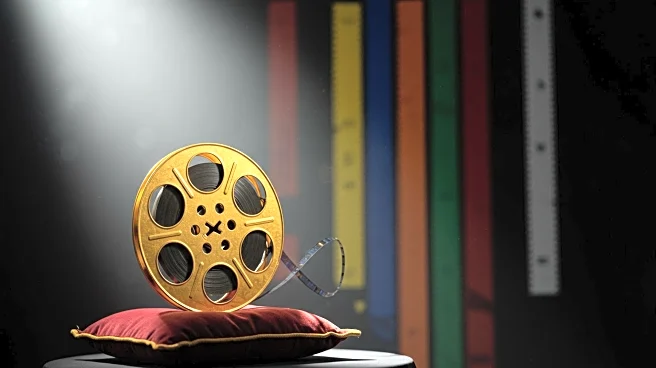What's Happening?
During the Sarajevo Film Festival's industry program, European film executives engaged in a discussion on gender parity, ethical standards, and the role of quotas in accelerating change within the film industry. Elad Samorzik, a programmer for the Berlin International Film Festival, emphasized the importance of diverse selection committees to organically promote diverse storytelling. Nataša Bučar, Managing Director of the Slovenian Film Center, highlighted the responsibility of film funds to ensure inclusion, citing the Swedish Film Institute's '50/50 by 2020' initiative as a successful model. Valeska Neu of Films Boutique supported quotas as a tool to expedite progress, despite potential short-term impacts on film selection.
Why It's Important?
The discussion underscores the ongoing efforts to address gender disparity in the film industry, which is largely funded by public money in Europe. Implementing quotas and inclusion targets can potentially lead to more diverse representation in film production and festival programming. This shift is crucial for fostering a more inclusive industry that reflects varied societal narratives. The conversation also highlights the ethical responsibility of film funds and festivals to support diverse voices, which can lead to broader cultural shifts and improved storytelling.
What's Next?
The dialogue at the Sarajevo Film Festival suggests that European film institutions may continue to explore and implement quota systems to promote gender parity. As more female filmmakers see changes in industry practices, there may be an increase in diverse project submissions. Festivals and film funds might further refine their selection processes to ensure balanced representation, potentially influencing global industry standards.
Beyond the Headlines
The push for gender parity and inclusion in the film industry reflects broader societal movements towards equality and representation. As the industry evolves, there may be shifts in the perception of film quality and storytelling, driven by diverse voices. This could lead to a redefinition of cultural narratives and the role of cinema in society.










